Do you often find yourself seeking validation from others? What if you could learn to validate yourself? Let us explore what is self-validation, why is self validation important for building self-esteem and confidence and how to practice self validation.
What is self-validation?
Validation is a powerful human need that helps us feel worthy and accepted by others. However, what happens when we don’t receive validation from others? Do we feel less worthy or less important?
This is where self-validation comes in. But what is self-validation?
Self-validation is the act of recognizing and accepting our own emotions, thoughts, and actions without relying on others for approval or validation. It is an essential part of building self-esteem and confidence, as well as maintaining a positive self-image.
Self-validation is not about ignoring or dismissing the opinions and perspectives of others. It is about learning to trust ourselves and our own experiences, instead of relying on others to tell us what is right or wrong.
Related: Why You Should No Longer Care About People’s Approval: 8 Reasons
Understanding self-validation
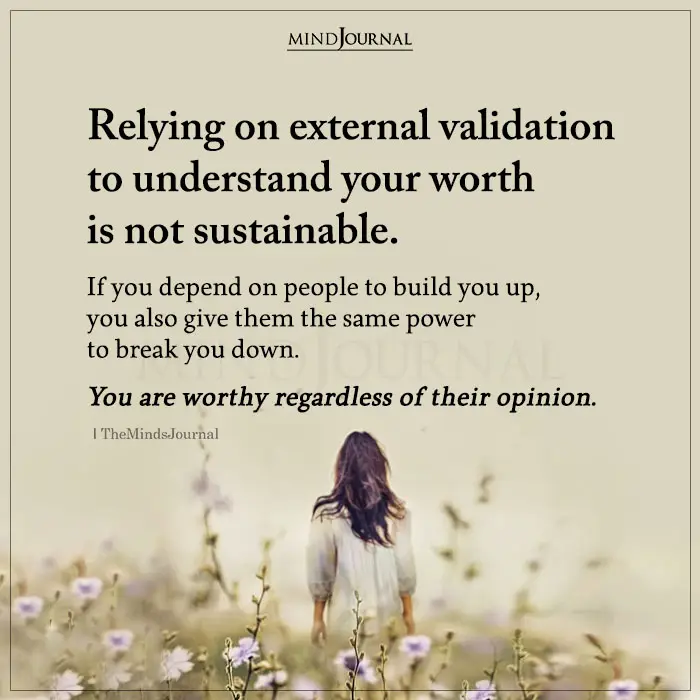
Self-validation is a powerful concept that involves recognizing and accepting one’s own thoughts, feelings, and experiences as valid and legitimate. It is the act of acknowledging and affirming oneself without seeking external validation or approval from others.
At its core, self-validation is about developing a healthy sense of self-worth and self-acceptance. It means understanding that your emotions, opinions, and experiences are valid simply because they are yours. It allows you to trust your own judgment and rely on your own internal guidance system.
Self-validation is essential for personal growth and emotional well-being. By validating ourselves, we can cultivate a strong sense of self-confidence, resilience, and authenticity. It enables us to make decisions based on our own values and beliefs rather than seeking validation from others.
Practicing self-validation involves being mindful of our thoughts and emotions without judgment or criticism. It requires acknowledging our successes, strengths, and accomplishments instead of downplaying them or seeking validation from others.
Self-validation also means allowing ourselves to experience difficult emotions without dismissing or invalidating them.
In a society that often places emphasis on external validation, embracing self-validation can be transformative. It allows us to break free from the need for constant approval from others and empowers us to live authentically in alignment with our true selves.
By cultivating this mindset, we can foster greater self-confidence, authenticity, and emotional well-being in our lives.
Now that we have a better idea about what is self-validation, let’s understand why it is so important.
Why is self-validation important?
Self-validation is important for several reasons. Here are some of the most important reasons why is self validation important –
1. Boosts sense of self-worth
When we validate ourselves, we acknowledge our own worth and value, regardless of what others may think or say. This allows us to develop a strong sense of self-belief and resilience in the face of criticism or rejection.
This can help us develop our sense of self-worth and self-esteem. When we learn to trust ourselves and our own experiences, we are less likely to rely on others for approval or validation. This can help us feel more confident and self-assured, even in the face of criticism or rejection.
Moreover, self-validation promotes authenticity and self-acceptance. By honoring our own emotions and experiences, we cultivate a deeper understanding of ourselves.
We learn to trust our instincts and make decisions that align with our true desires and values.
2. Better relationships
In addition to fostering inner strength, self-validation also enhances our relationships with others. When we rely solely on external validation for our sense of worthiness, we become dependent on others’ opinions. This can lead to feelings of insecurity or anxiety when approval is not received.
However, when we practice self-validation, we become less reliant on external validation for our happiness. This allows us to form healthier connections with others based on mutual respect rather than seeking constant reassurance.
When we are able to identify and communicate our needs and limits to others, we are more likely to develop relationships based on mutual respect and understanding.
Knowing what is self-validation and why it is important can help us feel more connected and fulfilled in our relationships, and reduce feelings of resentment or conflict.
Related: Rejection: Why You Must Not Let Others Behavior Affect Your Self Worth
3. Cope with negative experiences
If you are still wondering why is self validation important, then please know that self-validation can help us cope with difficult emotions and experiences. When we learn to acknowledge and accept our emotions, we are better equipped to deal with them in a healthy and constructive way.
This can help us feel more in control of our lives, and reduce feelings of anxiety or depression.
4. Being genuine
Ultimately, embracing the concept of self-validation empowers us to live authentically and confidently in a world that often pressures us to conform or seek validation from others. It enables us to embrace our unique qualities and perspectives without constantly seeking approval from external sources.
Learning about why is self validation important is crucial as it is essential for personal growth as it helps build self-esteem, promotes authenticity, strengthens relationships with others based on mutual respect rather than dependence on external validation.
By recognizing the importance of validating ourselves internally, we can embark on a journey towards greater self-acceptance and fulfillment in all aspects of life.
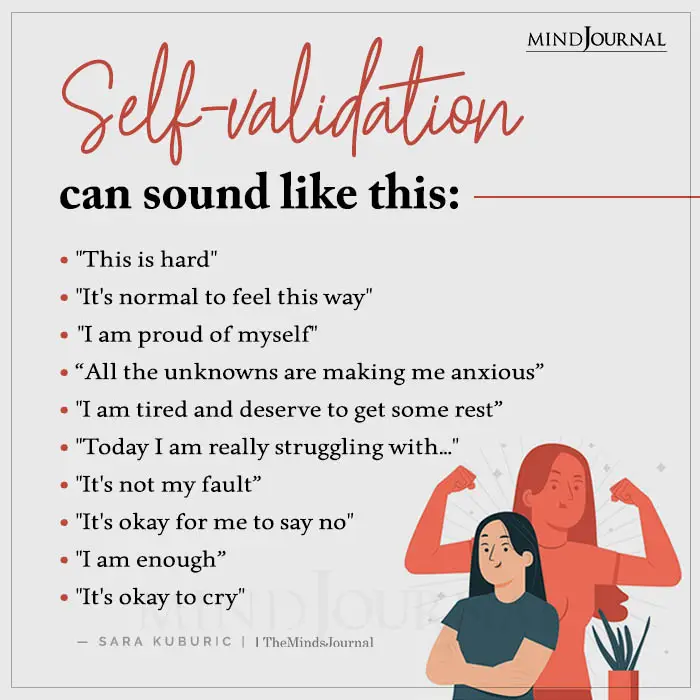
What are some common misconceptions about self-validation?
In order to know what is self-validation, we must also address some of the myths associated with it. There are several common misconceptions about self-validation that can prevent people from practicing it effectively. Here are a few:
1. Self-validation is selfish
One common misconception about self-validation is that it is selfish or self-centered. However, self-validation is not about prioritizing our own needs or desires over the needs of others.
It is about recognizing and accepting our own emotions, thoughts, and actions without relying on external validation. In fact, practicing self-validation can help us build healthier relationships and communicate our needs more effectively.
2. Self-validation means ignoring feedback
Another common misconception is that self-validation means ignoring feedback or criticism from others. However, self-validation does not mean dismissing or ignoring the opinions and perspectives of others.
It is about learning to trust ourselves and our own experiences, while still being open to feedback and new perspectives.
3. Self-validation is easy
Some people may think that self-validation is easy or straightforward. However, practicing self-validation can be challenging, especially if we have been conditioned to seek external validation.
It requires us to be honest with ourselves, acknowledge our emotions, and accept them as valid and understandable.
4. Self-validation is a one-time event
Self-validation is not a one-time event, but rather an ongoing process. It requires consistent practice and attention, as well as a willingness to learn and grow.
It may take time and effort to develop the skills and habits necessary for effective self-validation.
5. Self-validation is only for people with low self-esteem
Finally, some people may think that self-validation is only necessary for people with low self-esteem or confidence. However, self-validation is important for everyone, regardless of their level of self-esteem.
It can help us build a more positive self-image, develop stronger relationships, and cope with difficult emotions and experiences.
By understanding and dispelling these common misconceptions, we can begin to practice self-validation more effectively and reap the benefits it has to offer.
How to practice self validation
Practicing self-validation can help us develop a stronger sense of self-worth and self-esteem. It can also help us feel more comfortable expressing our true selves without fear of rejection or judgment.
Here is how to practice self validation –
1. Acknowledge your feelings
The first step in practicing self-validation is acknowledging your emotions. Instead of dismissing or suppressing your feelings, try to identify and name them.
This can help you better understand your needs and desires, and take action to meet them.
2. Validate your feelings
Once you have acknowledged your feelings, it’s important to validate them. This means accepting your emotions as valid and understandable, even if they don’t align with the opinions or perspectives of others.
You can do this by telling yourself, “It’s okay to feel this way. My feelings are valid.”
Related: 10 Ways To Limit People Pleasing
3. Practice self-compassion
Self-compassion is the act of treating yourself with kindness and understanding, especially during difficult times. Instead of criticizing or judging yourself, try to offer yourself the same compassion and support you would offer a friend.
This can help you develop a more positive self-image and increase your self-esteem.
4. Set boundaries
When it comes to learning how to practice self validation, setting boundaries is an important step. It involves identifying and communicating your needs and limits to others, and respecting them yourself.
This can help you feel more in control of your life and relationships, and reduce feelings of resentment or overwhelm.
5. Celebrate your successes
Celebrating your successes, no matter how small, can help you feel more confident and self-assured. Instead of dismissing or downplaying your achievements, take time to acknowledge and celebrate them.
This can help you build a positive self-image and increase your self-esteem.
Now that we know what is self-validation and how to practice self validation, let’s learn about some common techniques that can help you get started.
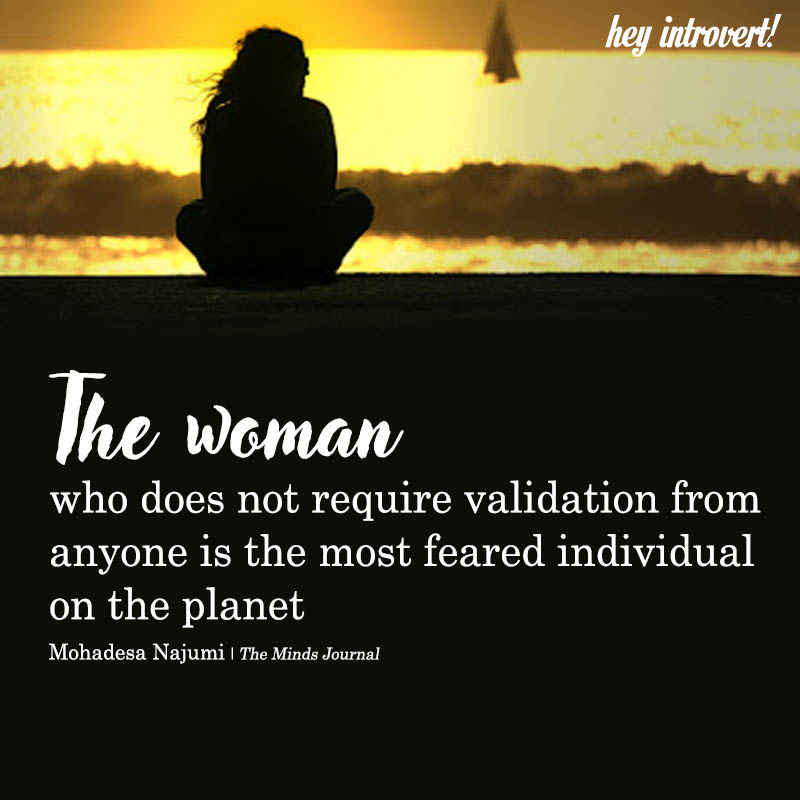
Techniques for practicing self-validation
Here are some of the most helpful self-validation techniques that you should try –
1. Mindfulness
Mindfulness is the practice of being present in the moment and observing our thoughts and feelings without judgment.
It can help us become more aware of our emotions and accept them as they are, without trying to change or suppress them.
2. Positive self-talk
Positive self-talk involves using affirming and supportive language when talking to ourselves. It can help us develop a more positive self-image and increase our self-esteem.
3. Journaling
Journaling can be a powerful tool for practicing self-validation. Writing down our thoughts and feelings can help us identify and name our emotions, and validate them as valid and understandable.
4. Seeking support
Seeking out support from friends, family, or a therapist can be a helpful way to validate our emotions and experiences. Talking to someone who understands and supports us can help us feel less alone and more validated.
5. Engaging in self-care
Engaging in self-care activities, such as taking a bath, going for a walk, or reading a book, can help us feel more relaxed and grounded. This can help us better cope with difficult emotions and experiences, and validate our need for self-care.
6. Practicing assertiveness
Practicing assertiveness involves communicating our needs and limits to others in a clear and respectful way. This can help us feel more in control of our lives and relationships, and reduce feelings of resentment or overwhelm.
7. Acknowledging achievements
Being happy with our accomplishments, no matter how small, can help us feel more confident and self-assured. Taking time to acknowledge and celebrate our achievements can help us build a more positive self-image and increase our self-esteem.
These are just a few techniques for practicing self-validation. The key is to find what works best for you and make it a regular part of your self-care routine.
Related: When It’s Hard To Validate Each Other In A Relationship, Try This
Takeaway
Understanding what is self-validation and practicing it is an essential part of building self-esteem and confidence, as well as maintaining a positive self-image. It is the act of recognizing and accepting our own emotions, thoughts, and actions without seeking external validation.
Practicing self-validation involves acknowledging and validating our own feelings, practicing self-compassion, setting boundaries, and celebrating our successes.
Self-validation is important because it can help us develop a stronger sense of self-worth and self-esteem, build healthier relationships, and cope with difficult emotions and experiences.
By learning to trust ourselves and our own experiences, we can feel more confident and self-assured, and live a more fulfilling life. So, take some time today to practice self-validation and see how it can positively impact your life.
Frequently Asked Questions (FAQs):
How do you validate yourself?
One can validate themselves by recognizing their emotions, thoughts, and achievements, and offering self-compassion and self-encouragement.
Is self validation good or bad?
Self-validation is generally considered good as it promotes self-acceptance, confidence, and emotional well-being, fostering a positive self-image.
What is the purpose of self validation?
The purpose of self-validation is to acknowledge and accept one’s feelings, thoughts, and experiences, fostering self-confidence and emotional resilience.
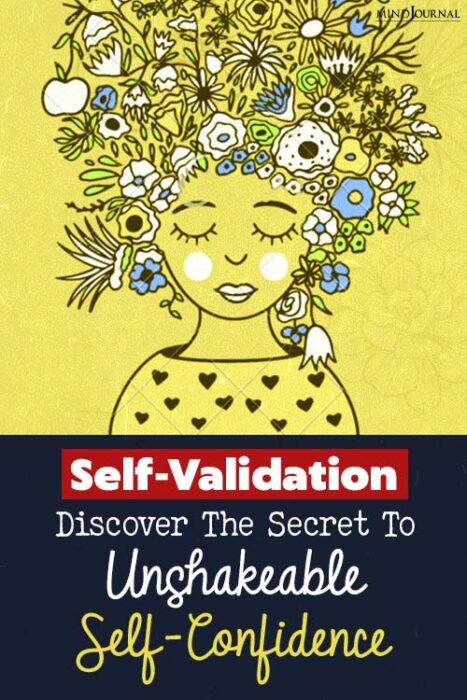
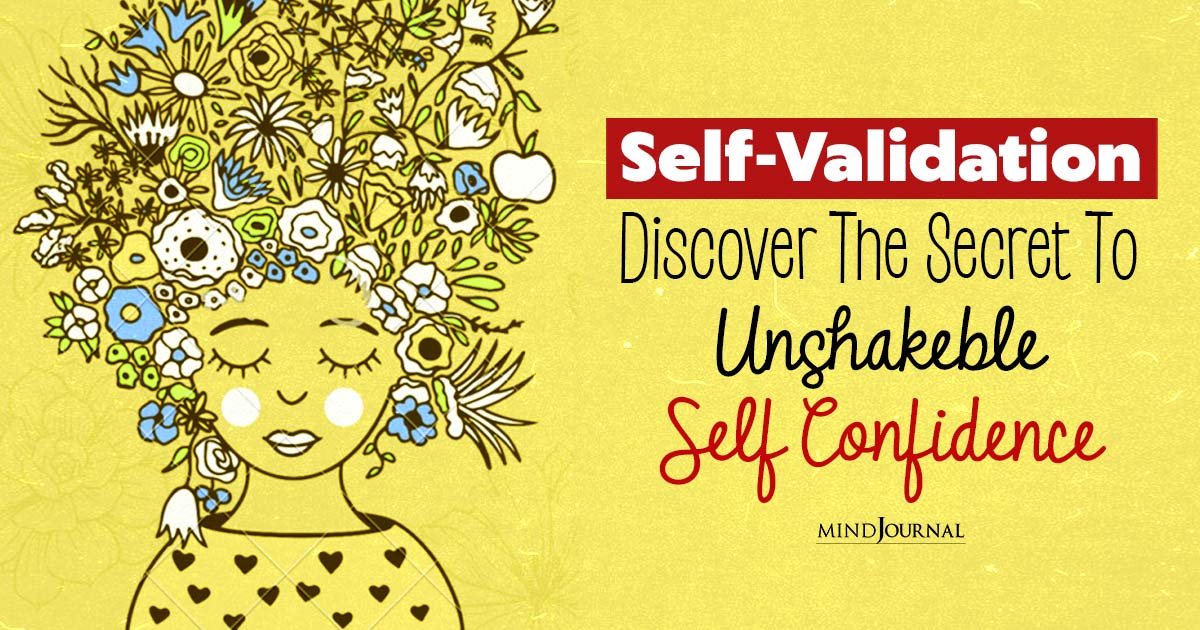









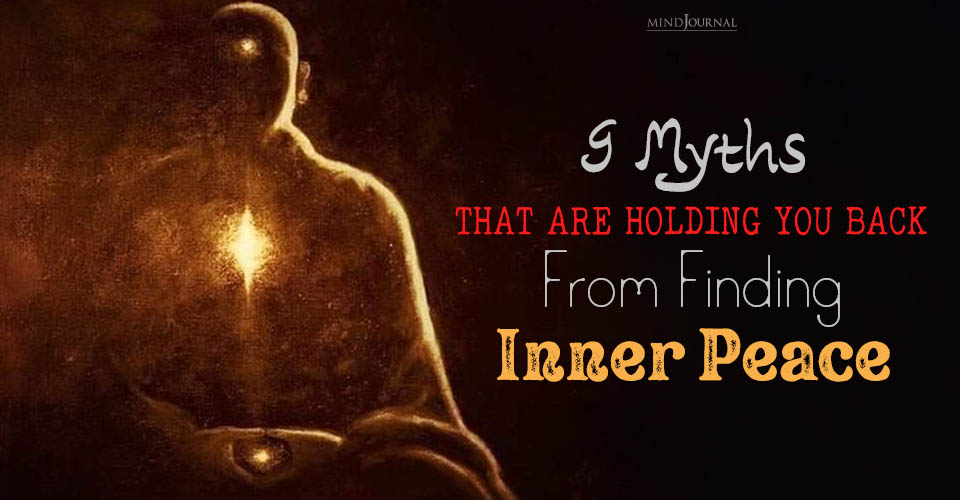



Leave a Reply
You must be logged in to post a comment.